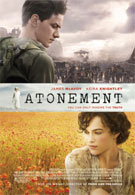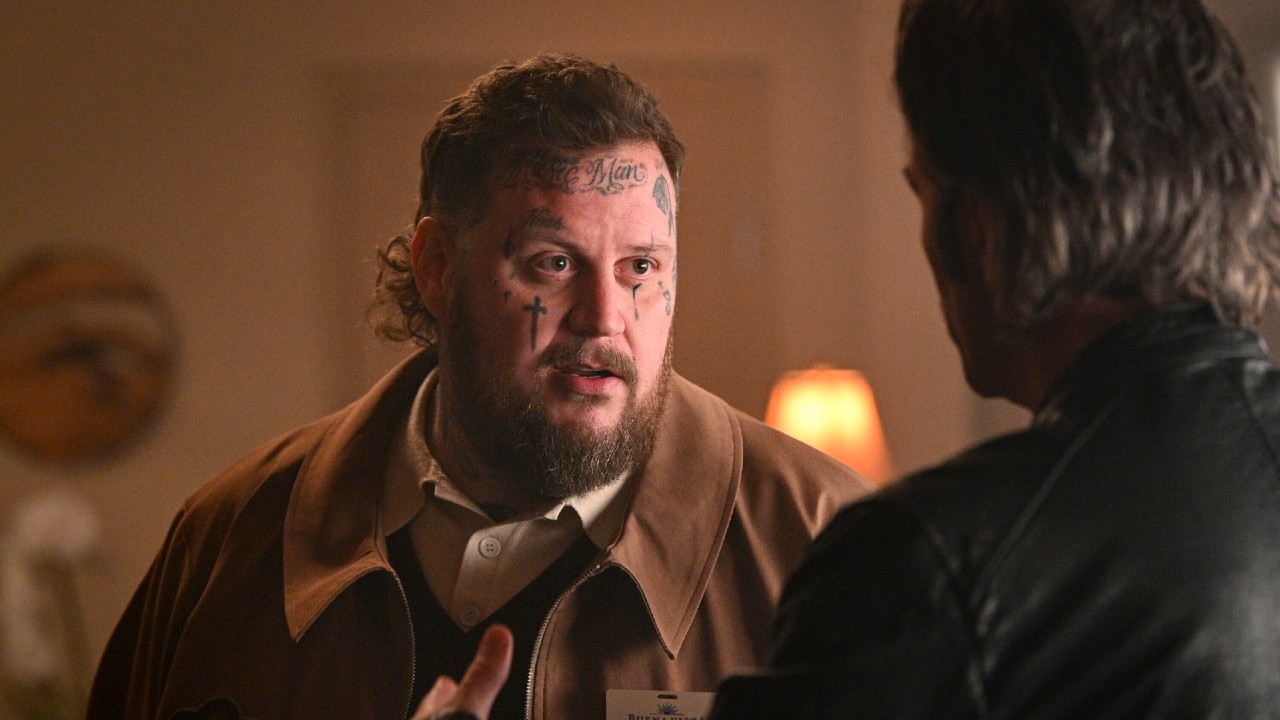This year has been rife with cash-in sequels and inferior remakes. Sure, Transformers was fun. Okay, so Shoot ‘Em Up made me bounce up and down like a giddy child with it’s over the top absurdity. But occasionally you feel that, even though these big dumb action movies are fun, after the hundredth movie where the plot exists solely to provide a link from set-piece A to set-piece B, you start to wonder if the art and the storytelling of cinema has gone down the pan. Flashy, over the top music video directors are all the rage, but they’re all visuals. They come across as having no concept of how to tell a real story or how to present characters that aren’t stereotypes. With his second movie Atonement, and at only 35 years of age, British newcomer Joe Wright strides confidently on to the scene and makes the like of Zack Snyder and Brett Ratner look like they learned their craft from a “For Dummies” book.
Briony Tallis is a highly talented 13 year old daughter of a well to do family in pre-WWII England. While her cousins want to go swimming in the lake, she wants them to help put on a performance of her latest play. However, with this talent comes a feverishly overactive imagination. When she sees an incident between her elder sister Cecilia (Knightley) and servant’s son Robbie (McAvoy) on a hot summer’s day, her immature imagination misconstrues an awkward flirtation as something darker. Briony’s imagination continues to twist events throughout that day with terrible consequences.
Atonement might possibly qualify as one of the most visually stunning films of the year. Wright doesn’t use shaky-cam or the hyperactive editing common of his young directorial peers. In fact, where other directors seem determined to blind and overload your senses, Wright slams on the brakes. His previous movie Pride and Prejudice was a visually impressive film in itself, but for Atonement he brings his A-game. There are many moments which wow but one scene in particular, a 5 minute single-take steadicam shot, is stunning not only for its immaculate choreography but also a bizarre detached quality which adds to the interpretation of how the character we are following feels.
Despite his young years Wright comes across as a more mature director of the old school than a Hollywood-chasing, MTV-alumni. Like fellow Brit director Ridley Scott he tells his story both through visuals and narrative. He makes the two work hand in hand. This is a darker, downbeat, more mature tale than Austin’s fluffy romance and Wright adjusts his handling of it accordingly. He goes out of his way to establish mood, using slow deliberate shots and never rushing to get to the next scene, even if it might be more important to the story. But this narrative pace suits the tale and it never feels as if it’s dragging its heels. Wright wants you to care about the main characters, to understand what they are going through, so that if and when things go wrong, you care. You feel. You understand. They aren’t stereotypes, they aren’t caricatures, they are people. And that makes anything they go through all the more real and relatable and powerful. It’s refreshing to see a movie not pushing you around urging you to keep up with a freight-train rush to the finale and more interested in the people than the set-pieces around them.
That attention to detail is such that even sound plays a huge part in Atonement. The sound editing is heightened to the point that you can hear every little noise from an incessant fly buzzing to Cecila taking a drag off her cigarette. Sounds within the movie also become seamlessly incorporated in to Dario Marianelli’s score in a surreal yet effective way. It all helps come together to give Atonement a sometimes almost dreamlike quality apt to the movie’s tone and themes.
None of the actors can be faulted. McAvoy is charming and likeable as the lowly servant’s son with ambitions in life and a pining for his lost love, Cecilia. With roles like this and his turn in The Last King of Scotland, McAvoy is slowly building himself a resume of great performances and is surely another talent to watch in the coming years.
The always unpredictable but always stunning Keira Knightley proves that when the director is more interested in the characters than the special effects she can put in a good performance. As the bored elder Tallis she successfully captures differing sides to Celila which emerge as the story progresses. McAvoy and Knightley also work well together on-screen. They capture perfectly a repressed desire for each other that eventually has to boil over.
Even young Saoirse Ronan handles herself well as young Briony, whose talent for writing may be more mature than most but is ultimately still a naïve young girl, not yet privy to the workings of adult life. Her strong performance makes it easy to see why Peter Jackson has cast her in the even more challenging lead role of his adaptation of The Lovely Bones. All the leads are propped up by a strong supporting cast of knowns and unknowns who cannot be faulted.
Atonement is a film about love against the odds. But it is also a film about the power and danger of a lie. It’s impossible not to be moved by it, even if like me, you usually approach war-time period dramas with the kind of anti-enthusiam usually reserved only for an Uwe Boll movie.











